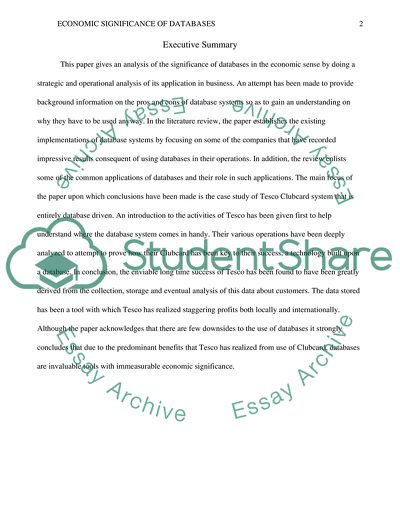Cite this document
(Economic Significance of Databases Research Paper, n.d.)
Economic Significance of Databases Research Paper. Retrieved from https://studentshare.org/macro-microeconomics/1686614-tesco-clubcard
Economic Significance of Databases Research Paper. Retrieved from https://studentshare.org/macro-microeconomics/1686614-tesco-clubcard
(Economic Significance of Databases Research Paper)
Economic Significance of Databases Research Paper. https://studentshare.org/macro-microeconomics/1686614-tesco-clubcard.
Economic Significance of Databases Research Paper. https://studentshare.org/macro-microeconomics/1686614-tesco-clubcard.
“Economic Significance of Databases Research Paper”, n.d. https://studentshare.org/macro-microeconomics/1686614-tesco-clubcard.


